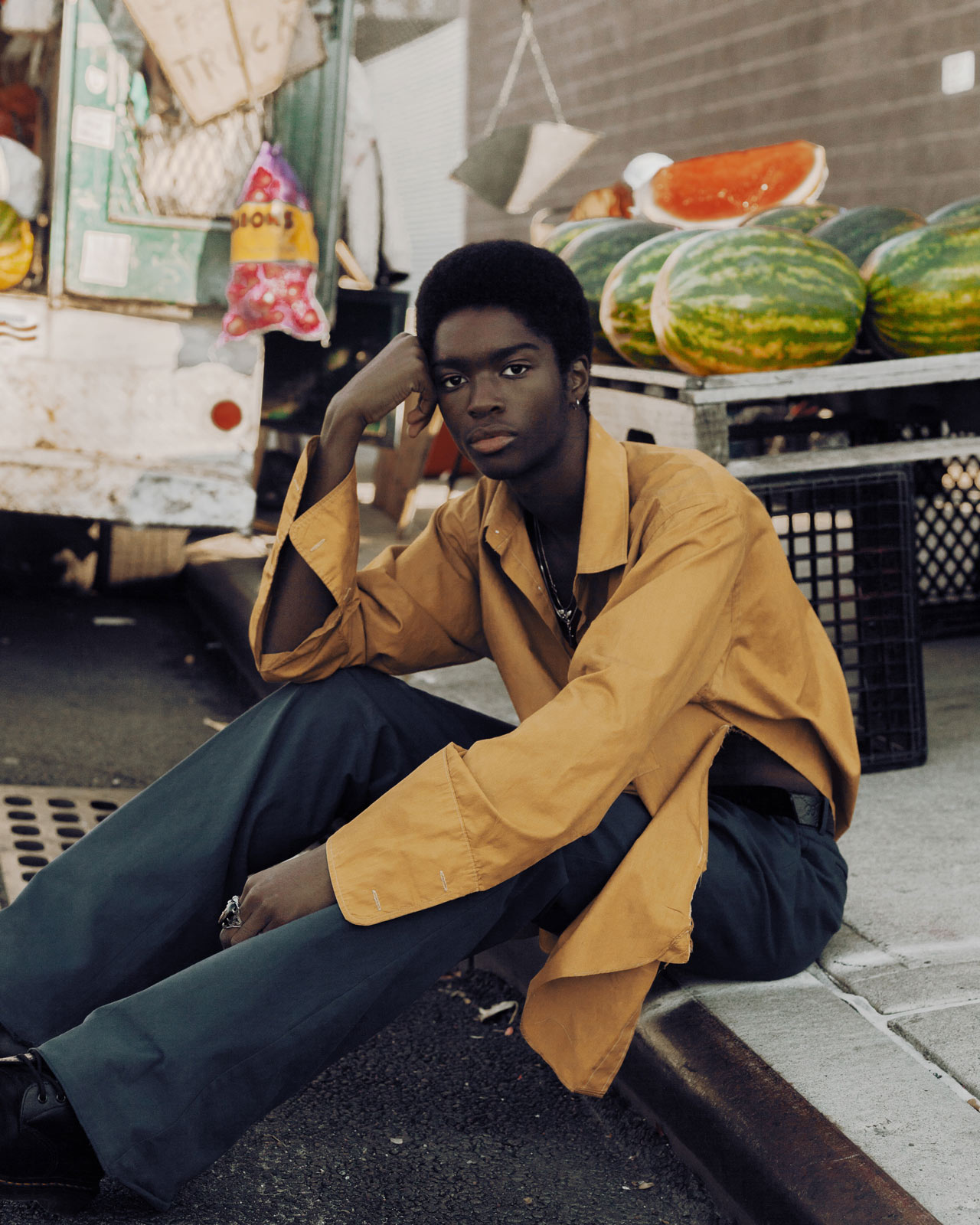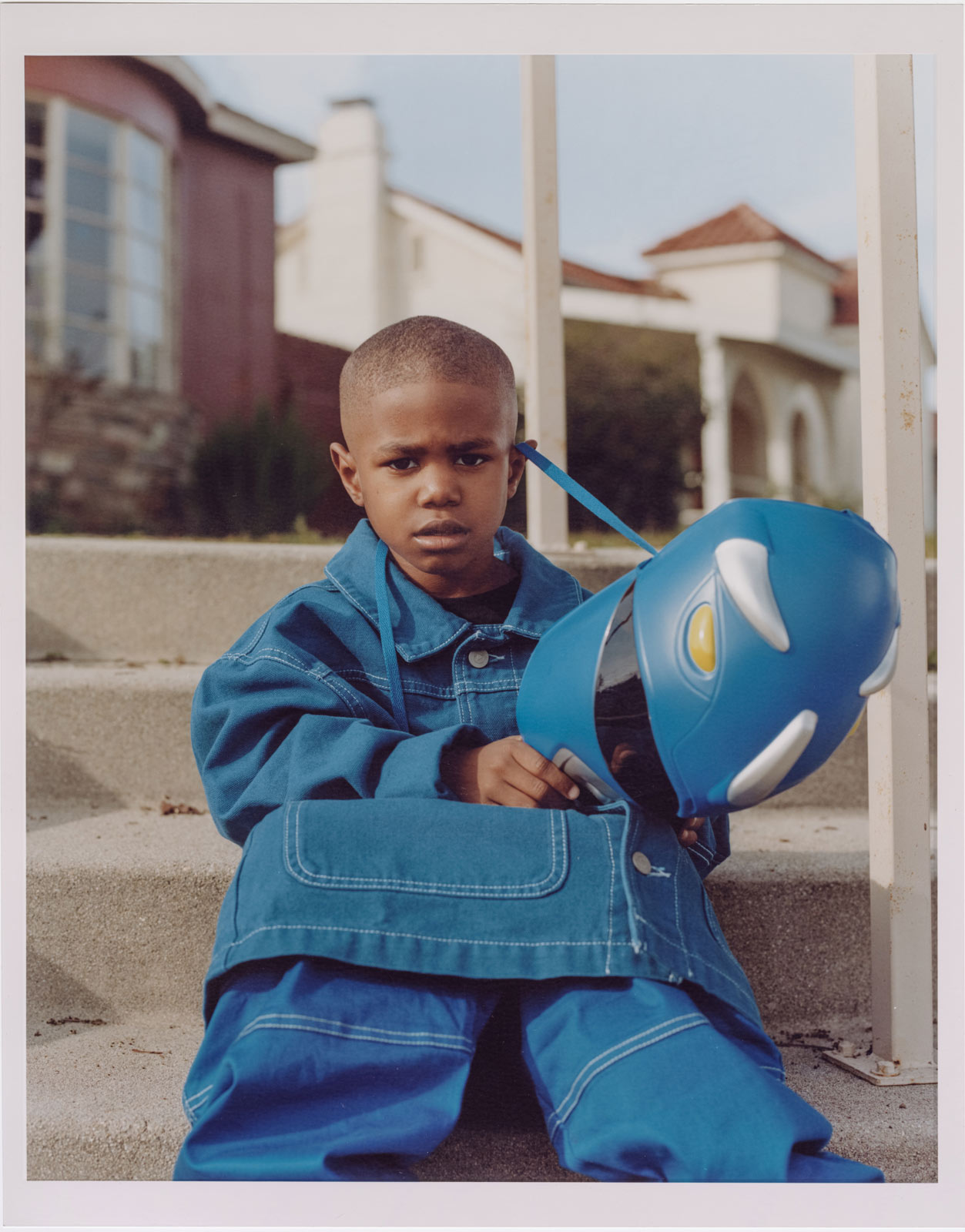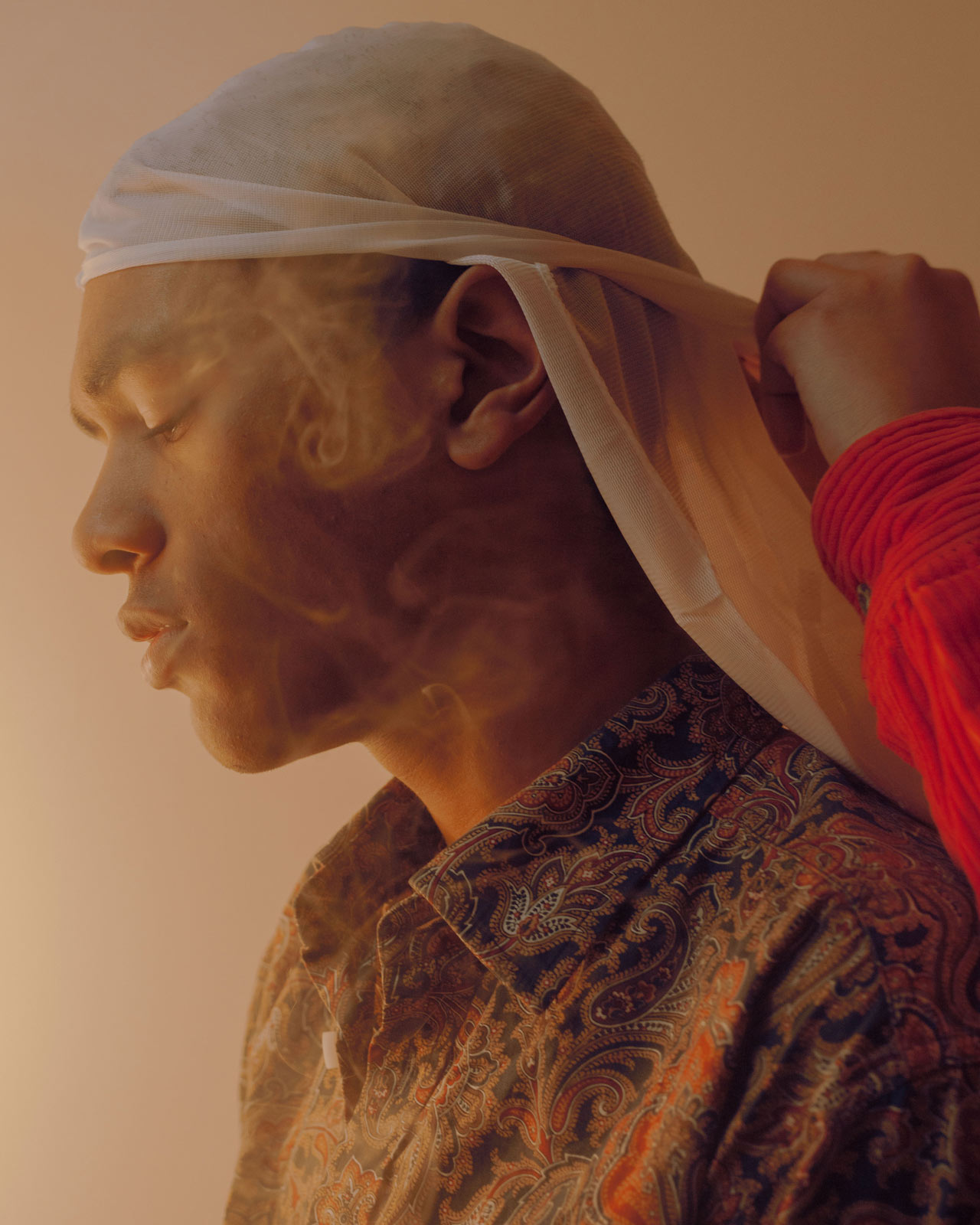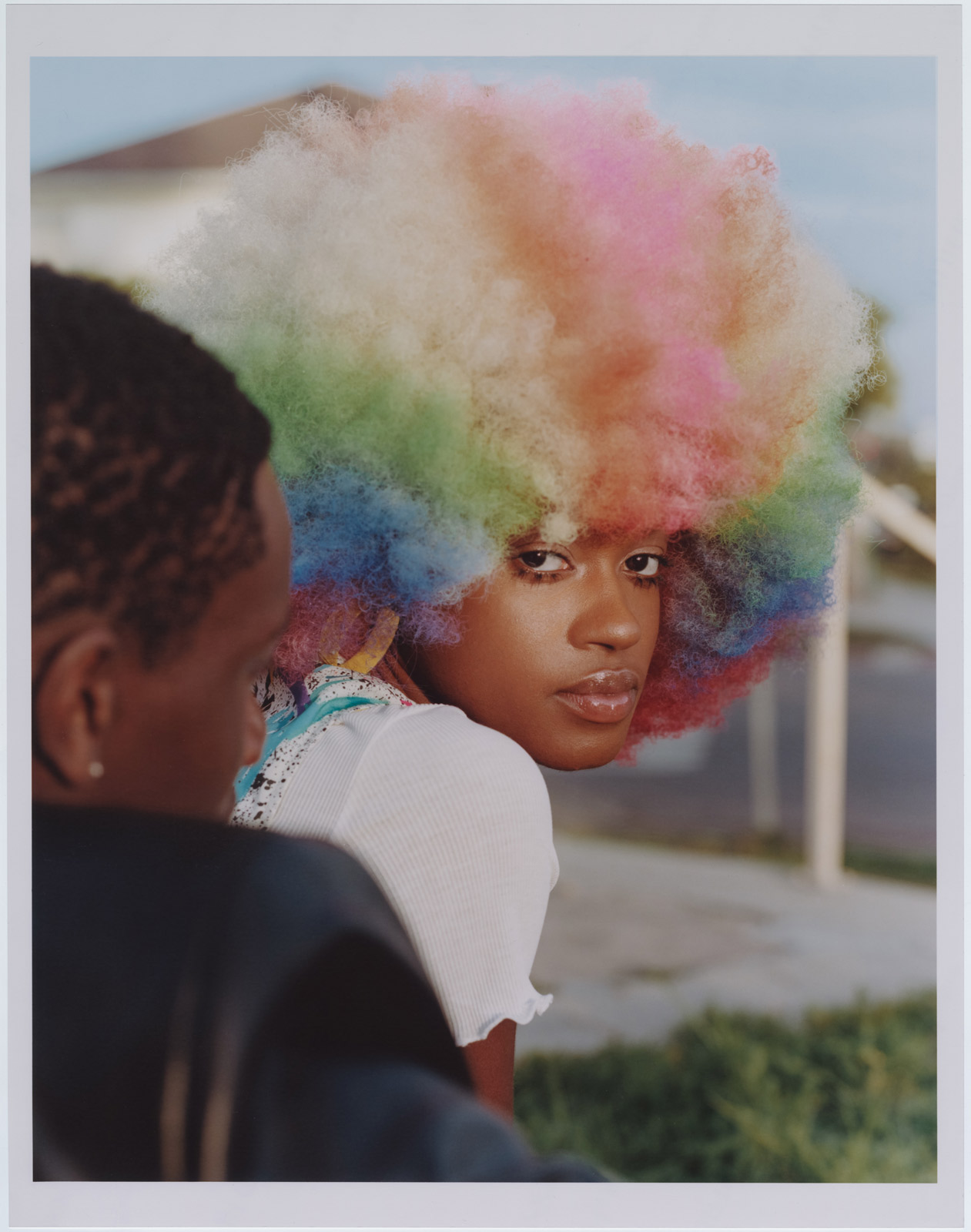The photographer’s new book portraits an earnestly uncorrupted version of the American Dream, traversing quiet moments of meditation and joy
“Warm truth and timeless energy inhabit Micaiah’s images,” Tracee Ellis Ross writes in the introduction to What’s My Name. “Through his lens we feel the worthiness of Blackness. Through his lens we feel his smile. Through his lens we are invited to be and to belong.”
Across the last decade, Micaiah Carter has built a library of work that distills an earnestly uncorrupted version of the American Dream: knowing of its complicated history, imaginative of a better one. Traversing quiet moments of meditation and joy, slices of vulnerability, and reflective gazes, his photography finds sincerity in the world around him. Carter’s portraits are often toned with an amber glow, but their warmth comes through even in black-and-white; his lens is observably friendly, fostering a truthfulness in his subjects—their ease encouraging a more holistic version of themselves.
“I don’t want to pigeonhole Blackness. Just the opposite, I want to expand it with the most enormous thundering exclamation possible.”
“When making this book, I noticed patterns from generational experiences, some positive and some rooted in trauma,” the photographer writes. “Still, it all being the truth, and the sliver of familiar experience between all humans is there. I don’t want to pigeonhole Blackness. Just the opposite, I want to expand it with the most enormous thundering exclamation possible.”
What’s My Name is a portrait of Carter as much as it is of his subjects; he publishes Polaroids from his family’s archive that inspired his craft, offering a clear window into his ideas of life and humanity within the photographs he takes. “We are all part of the same story,” the photographer continues. “Thank you for taking the time to view my work. I hope it brings you joy.”
It’s the stillness of Carter’s work that makes it loud; each photograph he takes is demanding in its sincerity, in its careful style, balmy color, and delicate detail.



















